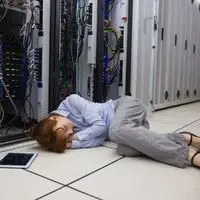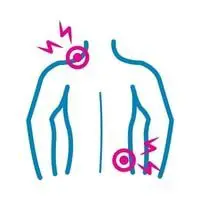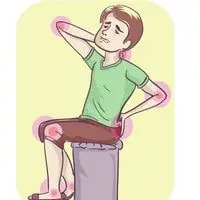Disadvantages of sleeping on the floor. Despite comfortable beds, people choose to sleep on the floor because of some medical condition or an advantage heard from nearby people. People with backaches are advised to sleep on hard surfaces.
Disadvantages of sleeping on the floor
Do you know these assumptions are not clarified scientifically? Sleeping on the floor has many cons, including body pain and backache itself.
So let’s discuss each of the issues caused by sleeping on hard surfaces like floors.
Increased Body Pain
Backache
If you opt to sleep on the floor because of body pain, then you need to know that instead of reducing pain, it might increase the pain up to the next level.
The human vertebral column is a natural curve which is why a hard straight surface can be troublesome for better sleep.
The human spine needs a surface that molds into its shape. Sleeping on the hard surface stresses the spine to maintain that curve, creating an intense backache.
Joint and Muscle Pain
Sleeping on the floor leads to joint and muscle pains because the floor adds pressure on your several joints. No one can sleep as straight as a stick.
Prolonged exposure to floors causes pain in joints and muscles.
Other body-related pains include a Stiff neck, painful butt, and cramped arm.
So it’s best to avoid sleeping on the floor. If the bed isn’t there, try the mattress to prevent long-term related issues.
Prone To Allergic Reactions
- No matter how much you keep the home clean, floors are always the home of many pathogenic bacteria and allergens.
- In the presence of a mat, rug, or even carpets, you are prone to many allergic reactions.
- The reason is that the floor attracts everything, as our earth has a gravitational force. The free-floating pet hairs, dust, dirt, mold spores, and invisible allergens affect you while sleeping on floors.
If you experienced any of these signs, you have been under attack by Allergan.
- Sneezing
- Coughing
- Itching
- Runny nose
- Irritation in eyes
Consult a physician for an antiallergenic and avoid sleeping on the floors to prevent relapse
Decrease in body temperature
- While sleeping on the floor in winter can lower the body temperature because heat rises.
- The floor might be too cold and adversely affect the human body temperature.
- Avoid sleeping on floors in winter. Even a mat or rug can’t hold the heat.
- It will start decapitating, leaving you in an ice-cold situation.
- People suffering from diseases like anemia, hypothyroidism, and type 2 diabetes mellitus are more prone to decrease body temperature while sleeping on the hard floor.
- Pregnant women should also avoid sleeping on the floor.
Prone To Insects
- In summers, you can sleep on floors because you may hear that it lowers the body temperature but what about sleepy insects?
- Because of Its lower elevation, it’s more prone to insects and other pests like mites, ants, and cockroaches. Ewwwwww!
- You can avoid this if you have a habit of cleaning the floor several times a day. But still not a good option to sleep on hard floors. Summers are the inviters to these creepy creatures any time, even if you are sleeping.
Old Age Factor
- People with an old age factor need to avoid sleeping on the floor. It is a high risk for body aches and backaches.
- They have weaker bones which are more prone to certain medical conditions.
- Old-age people suffer from colds more often, so a floor will lower the temperature causing more discomfort.
Time-Consuming Process
- Cleaning a bed and cleaning the floor several times is more time-consuming than the former.
- So it’s better to sleep on the bed rather than on the hard floor. All you need is to tidy up the bed and go for a peaceful sleep.
More Laundry
- Sleeping on the floor requires cleaning several times a day to avoid uncomfortable factors.
Conclusion
Sleeping on floors can cause backache, lower body temperature, and allergic reactions and consume most of your time avoiding these issues. So it’s better to avoid sleeping on the hard floors.
Related Guides




